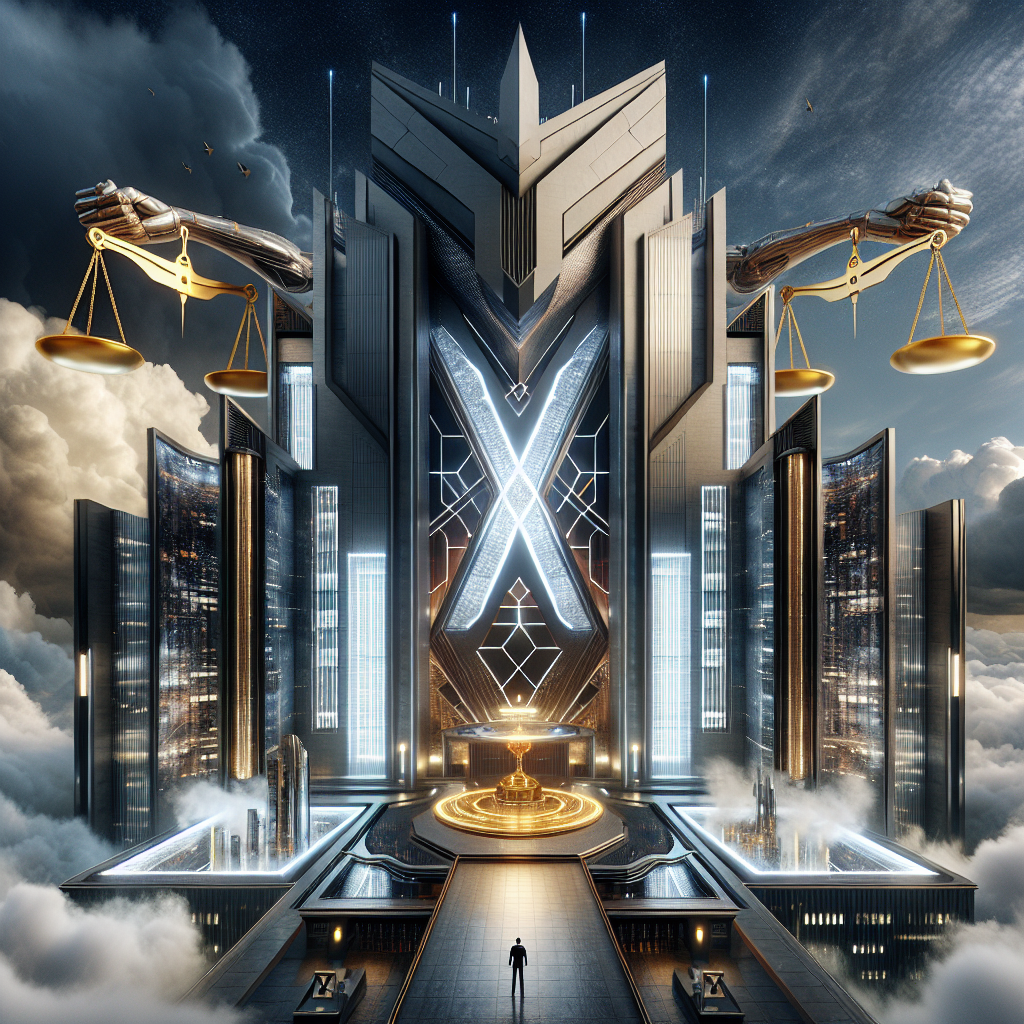EU Plans $1B Fine for Elon Musk’s X Over Disinformation
The European Union (EU) is making headlines once again as it sets its sights on Elon Musk’s social media platform, X, formerly known as Twitter. In a significant move aimed at combating disinformation, the EU has indicated its intention to potentially impose a hefty fine—up to $1 billion—on Musk’s company. This development raises critical questions about accountability in the digital space and the broader implications for platform governance.
The Context of Disinformation in the Digital Age
Disinformation has emerged as a pivotal concern in recent years, especially with the rise of social media platforms. The rapid dissemination of false information can have dire consequences on public opinion and democracy, making it imperative for governing bodies like the EU to take action.
1. **Impact on Public Perception**: Misinformation can skew the public’s understanding of events, particularly around elections and health crises.
2. **Corporate Responsibility**: Companies operating platforms that facilitate information sharing face increasing pressure to regulate the content that circulates within their ecosystems.
The European Union, through its Digital Services Act (DSA), has laid down rigorous requirements for large online platforms to take responsibility for the content found on their services. The DSA aims to create a safer online environment and to enforce stricter accountability measures for tech giants, including social media companies like Musk’s X.
Elon Musk and X: A Liability in the EU’s Eyes
Elon Musk has reportedly been known for pushing boundaries across his ventures, from Tesla to SpaceX. However, his stewardship of X has attracted scrutiny. Since Musk’s takeover of the platform, disinformation incidents have surged, prompting EU regulators to sound the alarm.
– **Rise in Disinformation**: Reports have pointed to an uptick in misleading content, particularly as X navigates complex issues such as climate change and geopolitical tensions.
– **Previous Regulatory Actions**: Musk’s actions have not gone unnoticed; regulatory bodies have previously highlighted the need for platforms to combat harmful content more effectively.
The $1 billion fine proposed by the EU is not just a punitive measure; it serves as a warning to Musk that governing bodies are serious about enforcing regulations that ensure platforms operate responsibly.
The Financial Implications of the Fine
While the figure of $1 billion appears daunting, one must consider the financial landscape of Elon Musk’s ventures. With billionaire status backed by successful companies such as Tesla and SpaceX, the imposition of such a fine might not significantly affect Musk’s overall financial health. However, the implications for X could run deeper.
1. **Reputational Damage**: A fine of this magnitude would signal to the public and investors that X is struggling to operate within the confines of EU regulations.
2. **Operational Adjustments**: In order to mitigate potential penalties, X would likely need to invest in improving its content moderation practices and developing robust protocols to address disinformation.
EU’s Broader Strategy on Digital Regulations
The EU has exhibited a proactive approach towards regulating the digital landscape. The proposed fine against X signifies a step in a larger strategy aimed at holding tech companies accountable for their role in disseminating false information and harmful content.
– **Digital Services Act (DSA)**: The DSA, which came into force recently, establishes a comprehensive regulatory framework for online platforms. Key provisions include:
– Increased transparency regarding algorithms and content moderation policies.
– Responsibilities for platforms to remove illegal content swiftly.
– **Global Influence**: The EU’s regulatory approach could inspire similar frameworks in other regions, potentially leading to stricter global standards for digital governance.
The Future of Content Moderation on Social Media
As the discourse around misinformation intensifies, the future of content moderation on platforms like X remains uncertain. The potential for high-stakes fines may incentivize platforms to enhance their oversight mechanisms.
1. **Investment in Technology**: Companies may turn to advanced technologies, such as artificial intelligence (AI) and machine learning, to detect and mitigate disinformation effectively.
2. **Collaborations with Experts**: Engaging with academic institutions and organizations specializing in misinformation research could enhance platforms’ ability to tackle these concerns.
As Musk grapples with regulatory pressures, it remains essential for X to adopt a proactive stance. The ongoing conversation around disinformation calls for robust measures and industry accountability that could redefine how social media operates.
What Can Users Expect from X?
For the average user of X, the implications of potential regulatory fines and the EU’s stance on disinformation may be felt in various ways:
– **Increased Transparency**: Users may witness improved clarity in how content is moderated, with greater transparency regarding the removal of posts and accounts.
– **Stricter Community Guidelines**: The platform might implement more stringent guidelines designed to promote accurate information and reduce the prevalence of disinformation.
It’s crucial for users to remain vigilant and understand how the platform adapts to these regulatory changes.
Conclusion
The EU’s plans to impose a $1 billion fine on Elon Musk’s X highlight the ongoing tensions between digital platforms and regulatory bodies in addressing the rampant issue of disinformation. As the EU continues to assert its regulatory authority in the digital realm, tech giants will need to adapt swiftly or face severe penalties.
Elon Musk’s X serves as a key test case for the effectiveness of such regulations, and how the platform responds may set the tone for future interactions between technology and governance. The reality is clear: social media is under scrutiny, and accountability in the digital age is more critical than ever. By addressing these challenges head-on, companies can foster a safer, more trustworthy online environment that benefits users worldwide.
As social media continues to shape public discourse, all eyes will be on the outcomes of this regulatory intervention and how it impacts the relationship between platforms and their users.




